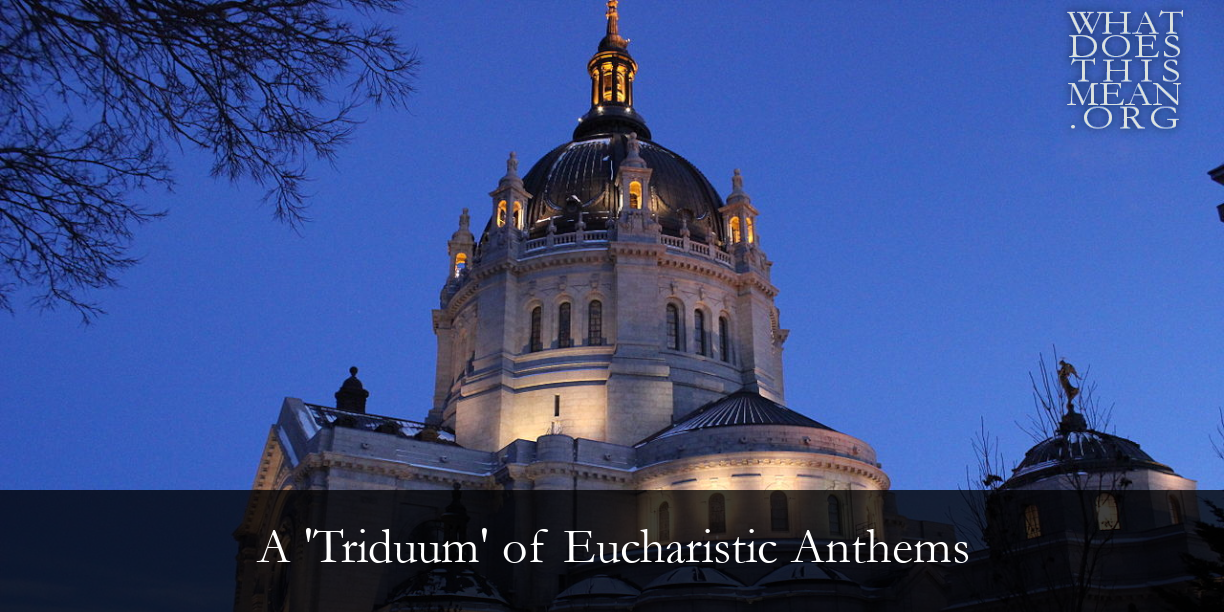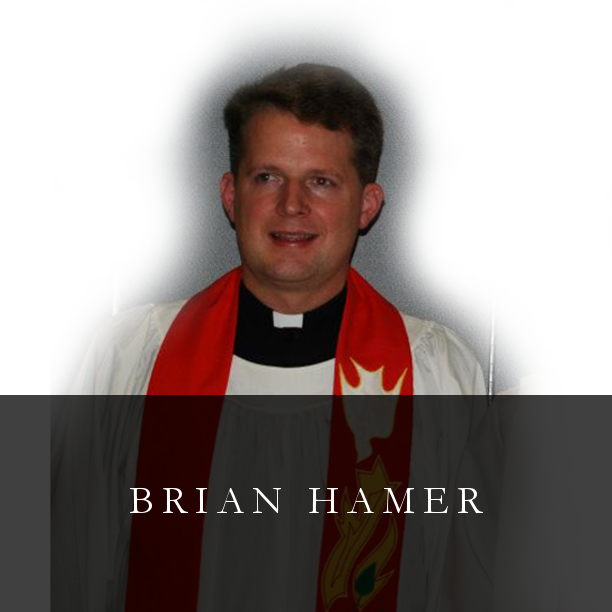– Liturgy of Holy Thursday
First, the word translated “supper” in the first and third lines of text (please see the text below) is the same word translated “kingdom” in the final line. Thus, the Kingdom of God comes to us in the Lord’s Supper, granting us to lead an earthly life in heaven and a heavenly life on earth. (The word “sacrament” in churches of the West is theologically equivalent to “mystery” in the churches of the East.)
Second, see how penitent faith permeates first-person narrative for those who receive the heavenly mysteries. Far from the modern notion that Communion is a personal right, a step towards church unity, or merely a show of camaraderie, this anonymous liturgical text grants the faithful the ability to speak in genuine, sacramental piety. Here is the prayer of the broken heart (Psalm 51) that joins with the penitent thief to cry, “Remember me, O Lord, in Thy kingdom” (St. Luke 23:42).
The music by Alexandre Gretchaninoff (1864–1956) is typical of the Russian Orthodox liturgical music of the late-nineteenth and early-twentieth centuries: “dark, lavishly layered music” and “big, sixteen-part pieces that reach for the effect of an orchestra” (Brian Newhouse, liner notes to Gothic CD 49252, p. 5). Here the DWS encountered a challenge, since a forty-voice ensemble might be stretched thin by too many textures. But they were certainly up to the task. Listen for their purity of tone, intonation, and legato sound, as befits music that accompanies the sacred feast.
| Of Thy mystical supper, O Son of God, accept me today as a partaker: for I will not speak of Thy mystery to Thine enemies, neither like Judas will I treat Thee, but like the thief I will confess Thee: “Remember me, O Lord, in Thy Kingdom.” Alleluia! |
The music by Pavel Chesnokov (1877–1944) is a remarkable combination of simplicity and beauty. The composer chose a binary (AB) musical form. The first line of the text comprises section A, followed by repetitions of “Alleluia” for section B. This structure might reflect the custom of repeating selected refrains (“Alleluia,” “Lamb of God,” “Grant us peace,” etc.) until the distribution of the Lord’s Supper is complete. Lyrically, the music gradually rises out of the depths, much like the human nature of Christ. Technically, the vocal range spans several octaves and reaches a distinct climax with a leap into the upper register, before settling to a peaceful cadence and repetition of the three-fold Alleluia. Notice the long phrases and the demand for superb breath support, which explain why this work is also played by wind ensembles as a warm-up for breath support. Theologically, here is a melodic portrait of Psalm 85:11, “Faithfulness springs up from the ground, and righteousness looks down from the sky.”
| | Salvation is created in the midst of the earth, O God. Alleluia, Alleluia, Alleluia. |
The music by Lithuanian composer, Vytautas Miškinis (b. 1954), begins in the lower reaches, with clustered sounds and vague harmonies in the men’s voices. He then adds layers of simple chants in the women’s voices, which eventually soar into the upper registers with increasing joy and rhythmic animation. Warland said that the sopranos of DWS must be able to “sing freely and naturally . . . [and be] able to respond to the demands of the music and to be able to control their vibrato, depending on the style of music at hand” (Choral Journal 45:1, p. 38), and the sopranos obviously were up to the task. The men remain anchored in their native vocal range, finally arriving on a low D-flat, a note the composer has studiously avoided yet anticipated throughout the work. Brian Newhouse writes, “The unmistakable effect is one of coming home” (liner notes to Gothic CD 49252, p. 7). In theological terms, the communicant who has received the body and blood of Christ in remembrance of His Passion has also received a pledge of future glory. Thus the faithful communicant is at home with Christ, lacking nothing in the presence of the Good Shepherd.
| O sacrum convivium in quo Christus sumitur: recolitur memoria passionis ejus: mens impletur gratia et futurae gloriae nobis pignus datur, alleluia. | O sacred banquet at which Christ is received: the memory of His Passion is recalled: our souls are filled with grace and [the pledge of] future glory is given to us, alleluia. |
Building a Library of Sacred Music
with the Dale Warland Singers
https://en.wikipedia.org/wiki/Dale_Warland_Singers
The website of The Dale Warland Singers appears to be no longer functional, but the website for Dale Warland himself is current. It includes biography, press kits, recordings, and much more.
https://dalewarland.com/
More important than reading about the DWS, of course, is the opportunity to give their recordings a fair hearing. https://dalewarland.com/recordings/ contains a complete list of available CDs for purchase. Before spending too much of your latest “Biden Bucks,” be sure to check your online platforms for recordings that you have already paid for.
You will encounter some secular works that might be informally classified as “far out,” but I encourage you to give the DWS a fair hearing. You might agree with one reviewer’s comments on the CD, Lux Arumque, which is the source of all three selections explored in this issue of “Lifted Voice”:
| | Each piece transports the listener into that special world reserved for the truly magical moments in music. The listener is enthralled, overcome with sound so magnificent that he does not desire to leave. Every selection is stunning and you will find yourself listening again and again. (Choral Journal 48:8, p. 99) |



 RSS Feed
RSS Feed
